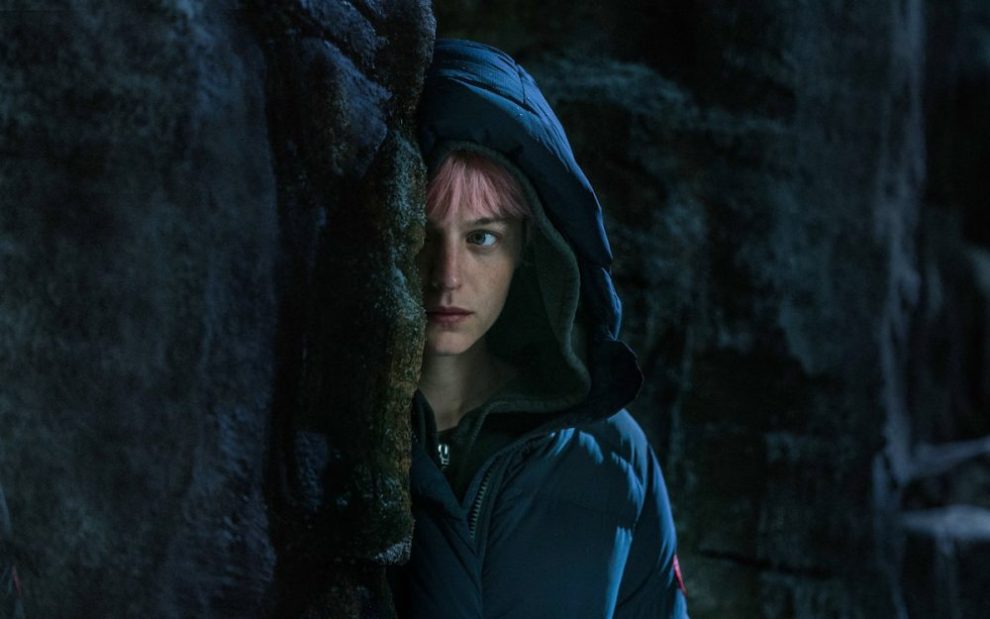A Murder at the End of the World
Created by Brit Marling and Zal Batmanglij (FX, 2023)
In murder mysteries, why do audiences fixate on the killers? What about the victims? As one character puts it in the season finale of A Murder at the End of the World, what about the “terrifying culture that keeps producing them”?
The FX series is a thoughtful whodunit, beautifully shot, well-acted, and with a fresh perspective on the murder mystery genre. The main character, Darby Hart (Emma Corrinson), is a young author and investigator who is involved in two stories.
In the post-pandemic present, we find her among the list of invitees to an annual retreat of geniuses hosted by billionaire tech mogul and AI innovator Andy Ronson (Clive Owen) and his wife, Lee Andersen (Britt Marling). We don’t know why Darby is there among the who’s who of technological glitterati. In classic mystery style, a murder happens, Darby tries to solve it, and it leads us through a maze to a surprising conclusion with a timely warning.
The other storyline is a flashback to Darby’s teenage years as a hacker who, with sleuthing and romantic partner Bill Farrah (Harris Dickinson), seeks to find a serial killer responsible for a glut of female cold cases. Naturally, they find leads overlooked by others, and, as the series progresses, Bill becomes frightened of Darby’s growing fascination with the killer. As Bill reminds Darby, killers are unremarkable, boring, and do not deserve the attention they garner. It is the victims who are remarkable and have stories to tell. It is the victims who should be the focus and will point the way to the truth.
A Murder at the End of the World reminds us that it is through the humanity of the victims, not the inhumanity of the killer, that we glimpse of how to build a more humane future.
This article also appears in the April 2024 issue of U.S. Catholic (Vol. 89, No. 4, page 38). Click here to subscribe to the magazine.
Image: Chris Saunders/FX
















Add comment